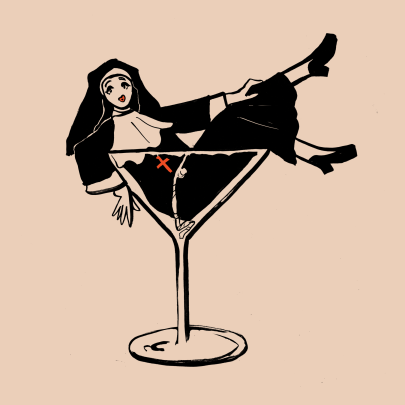Feb 22, 2016 Theatre
Carl Bland’s Te Po connects us to loss, also the thrill of life.
In July 2010, Peta Rutter died of a brain tumour. She was 51. In November 2014, Carl Bland presented his play Te Po at a workshop with the Auckland Theatre Company. Bland was the partner of Rutter, in life and in theatrical collaboration over many years. Te Po, which means “the night”, but also means a lot more than that, is his tribute to the great New Zealand playwright Bruce Mason.
What? It is also an exploration of Maori and Pakeha relations, and a fantastically surreal experiment with storytelling, and a vehicle for some very beautiful, very large and very surprising animal puppets (that seagull in our photo is just the start). It’s deliciously and sometimes hysterically funny, too. And, overwhelming all of that, it’s about grief.
It is also an exploration of Maori and Pakeha relations, and a surreal experiment with storytelling, and a vehicle for some very beautiful, very large animal puppets.
Te Po is Bland’s response to the loss of his love. Well, the part of it he’s been prepared to put in the public domain. For all of us in the audience at that workshop production, by the time Te Po had finished, with a monologue written by Rutter, it had steamed over our defences like a runaway train. It was difficult, and glorious, the way theatre can be. It connected us to grief and also to the thrill of life, the way you long for theatre to do.
“I wrote it in three weeks,” he says, sitting on the terrace at Soul, where I have enticed him, along with long-time director and collaborator Ben Crowder, to eat oysters and fish and stare at boats. “This is nice,” he adds.
And so it is. Three weeks is not a long time to write anything, let alone pull multiple narrative threads out of your head, complete with interlocking ideas about art and life, outrageously original ideas about what you can do onstage and a theme that plumbs your own private and very confusing despair. But three weeks it was.
“I haven’t really changed anything from the workshop,” he adds matter-of-factly. “I didn’t change anything in the workshop, either.”
Bland is 54. He’s the careful one. Wavy hair under control, everything contained. Trim. He’s decisive, though, not hesitant, in the way he sits, the way he speaks. Crowder, 44 and habitually dishevelled, sits on a chair like he’s crouching there, his face all furrowed brow and twitching smile, and then he booms — he’s got a deep strong voice that comes at you like a drum. He’s the earnest enthusiast. They reckon they agree about 90 per cent of the time.
There are puppets in this show: giant animals, created by set and prop builders Main Reactor. Crowder and Bland talk about this — using animals in a story — the same way Yann Martel, the author of The Life of Pi, does. “The animals carry a lot of the emotion in the work, because they’re witnesses,” says Bland. “Little animals watching big events. It makes them godlike.”
They both like working with them. “We had a week of rehearsals without the actors,” says Crowder. Just the animals and the set.
“They’re easier to work with,” says Bland. “More expressive.”
Crowder says one of the things he likes about Bland’s work is that he asks for impossible things. In Te Po, the first two acts are set in Bruce Mason’s study, which is small, and the third is on the beach, which must be suddenly revealed: there is no break between the acts. Crowder: “You look at it and you go, this will be hard. This will be good.”
They wanted to flood the stage with water, but the first venue, at Te Papa in Wellington, wouldn’t allow it. “You can’t fight the Museum of New Zealand,” says Crowder. “They’ve got quite important collections there and they won’t let you put them at risk by flooding their stage.”
Bland is in Te Po, as an actor. Is that hard? “It’s a dangerous game. Grief isn’t something you can share.”
Where did he start, when he sat down to write it? Not with Rutter, it turns out. Bland wanted to write about Mason, and what he had in mind was a place: that little study. Not a character or a story?
“I’m a spatial thinker,” he says. It seems odd, for a writer whose work is so engaged with language and ideas. “But I’m a painter, too,” he says. He starts to tell me about object-based philosophy, which is a thing that relates to astrophysics and is based around the idea that all things communicate with each other. Across the room. Across time and space.
What does that mean? “They’re ‘aware’ of each other. That interests me.”
Crowder interrupts to say, “But it doesn’t feel like magic realism.”
“It’s not magic realism.”
And how did Rutter get in? Bland looks at me and I know what he’s thinking. Why do I even ask? She was going to get into whatever he wrote. She possibly always will.
He finishes eating his fish. There are fish in the play, I remember. “It’s a play about grief,” says Bland. “I suppose you could say it’s a comedy about grief.”
Te Po, Q Theatre, March 9-14. qtheatre.co.nz
Main image: Playwright Carl Bland (seated) with director Ben Crowder and one of their “Godlike” puppets. Photographed exclusively for Metro by Stephen Langdon.





